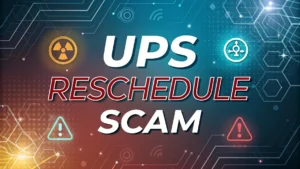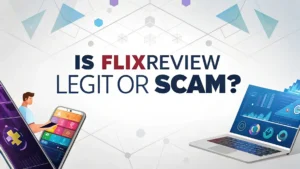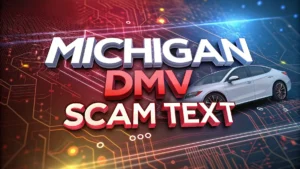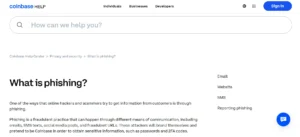Have you received a text message from someone claiming to work with Kelly Services offering you a remote job opportunity? Your phone buzzes with an exciting job offer promising good pay and flexible work hours. It sounds perfect, but is it real?
In today’s digital world, text message scams have become increasingly sophisticated, and scammers are impersonating legitimate companies like Kelly Services to steal your money and personal information. These text scams cost Americans a staggering $470 million in 2024 alone, according to the Federal Trade Commission.
This comprehensive guide will help you recognize Kelly Services text scams, protect yourself from recruitment fraud, and understand what legitimate communication from Kelly Services actually looks like. Whether you’re actively job hunting or just received an unexpected text message, this information will help keep you and your personal information safe from scammers.
Key Takeaways
- Kelly Services is a legitimate staffing company that has been in business since 1947, but scammers frequently impersonate them through text messages
- Genuine Kelly Services representatives will only email you from an official @kellyservices.com email address and never use personal email accounts like Gmail or Yahoo
- Text message job scams cost Americans $470 million in 2024, with reported losses increasing fivefold since 2020
- Kelly Services will only send SMS text messages if you have specifically opted in to receive them
- Job scams often promise unrealistic salaries, immediate hiring, and minimal qualifications to lure unsuspecting victims
- Never provide personal financial information, Social Security numbers, or pay any money upfront for “training” or “equipment” to potential employers via text
- If you receive a suspicious text claiming to be from Kelly Services, report it to the Federal Trade Commission at ReportFraud.ftc.gov and forward it to 7726 (SPAM)
- Kelly Services conducts interviews via phone or professional platforms like Microsoft Teams, SparkHire or Convey IQ—never through text messages or Google Hangouts
- Verify any job opportunity by visiting the official Kelly Services website or contacting them directly through their verified contact information
- Always research the company, check email domains carefully, and be wary of any job that seems too good to be true
What is Kelly Services?
Kelly Services is a legitimate global staffing and workforce solutions company founded in 1946. With decades of experience in the employment industry, they connect qualified professionals with job opportunities across various sectors including administrative, industrial, technical, and professional fields. Kelly Services operates in countries worldwide and is recognized as one of the largest staffing companies globally.
The company provides temporary, temp-to-hire, and direct-hire staffing solutions to businesses of all sizes. They handle recruitment, screening, and placement processes for their client companies. Many job seekers turn to Kelly Services to find employment opportunities that match their skills and career goals.
Because of their established reputation and large presence in the staffing industry, scammers frequently impersonate Kelly Services to lend credibility to their fraudulent schemes. Understanding how the real Kelly Services operates is essential to recognizing impostor scams that misuse their name.
Kelly Services maintains official websites at kellyservices.com and mykelly.com where job seekers can browse legitimate opportunities. The company has a structured recruitment process that never involves requesting payment from candidates or conducting entire interviews via text message. Being familiar with their legitimate practices will help you spot red flags when scammers try to impersonate this respected company.
How Kelly Services Text Scams Work
Kelly Services text scams follow a pattern that has become increasingly common in recent years. These scams begin with an unsolicited text message claiming to be from a Kelly Services recruiter. The message typically offers an attractive remote job opportunity with minimal qualifications needed and promises high pay for simple tasks.
The initial text message often contains vague job descriptions like “data entry specialist” or “administrative assistant” and emphasizes the remote nature of the position. Scammers know that many people are looking for flexible work-from-home opportunities, so they use this as bait to get responses from potential victims.
Once you respond to the initial message, the scammer moves quickly to establish credibility. They may send professional-looking documents with the Kelly Services logo or direct you to a fake website that mimics the real company’s site. They often use pressure tactics by claiming the position is in high demand and will be filled quickly.
The fraud typically escalates in one of several ways:
- Payment requests: The scammer asks you to pay for training materials, equipment, background checks, or software. They promise reimbursement with your first paycheck, which never arrives.
- Personal information theft: They request sensitive personal details like your Social Security number, bank account information, or copies of identification documents for “employment paperwork,” which they then use for identity theft.
- Check cashing schemes: Some scammers send fake checks for “equipment purchases” and instruct you to deposit the check and wire a portion of the money to a “vendor.” The check eventually bounces, leaving you responsible for the full amount.
- Direct deposit setup: The scammer may ask for your banking information to “set up direct deposit” but instead uses it to steal money from your account.
These scams are designed to appear legitimate with professional communication and reasonable-sounding requests. However, any text message recruitment from someone claiming to be from Kelly Services should immediately raise red flags, as this is not how the real company initiates contact with potential employees.
Red Flags of Kelly Services Text Scams
Knowing the warning signs of Kelly Services text scams can help you avoid falling victim to these fraudulent schemes. Here are the key red flags to watch for:
Communication through personal email accounts. Legitimate Kelly Services recruiters will only use email addresses ending in @kellyservices.com. If you receive messages from Gmail, Yahoo, Hotmail, or other personal email domains claiming to be from Kelly Services, it’s a scam. Be especially alert for slightly misspelled email domains like “kellyservice.com” or “kelyservices.com” that try to mimic the legitimate domain.
Immediate job offers without proper interviews. The real Kelly Services has a structured recruitment process that includes proper screening and interviews. If you’re offered a position immediately via text with minimal vetting, be suspicious. Legitimate companies don’t hire people without thoroughly assessing their qualifications.
Job offers that seem too good to be true. Scammers often advertise positions with unusually high pay for minimal work or simple tasks. They promise flexible hours, no experience required, and extraordinary compensation packages that legitimate employers couldn’t reasonably offer.
Requests for upfront payments. This is perhaps the biggest red flag of all. The genuine Kelly Services will never ask candidates to pay for anything during the recruitment process. Requests for money to cover training, equipment, software, certification, or background checks are clear signs of a scam.
Pressure to act quickly. Scammers create a sense of urgency, claiming that positions will be filled fast or that you need to complete certain steps immediately to secure the job. This pressure tactic is designed to make you act before you have time to think critically or research the opportunity.
Conducting entire interviews via text. Kelly Services conducts interviews via phone or professional platforms like Microsoft Teams, SparkHire, or Convey IQ. They will never conduct an entire interview process through text messages or informal chat applications like Google Hangouts or WhatsApp.
Poor grammar and spelling errors. Many text scams originate from overseas and contain noticeable language errors or unusual phrasing. While not all scammers make these mistakes, the presence of multiple grammatical errors should raise your suspicions.
Vague job descriptions. Scammers often provide minimal details about actual job responsibilities or the company itself. Legitimate recruiters can clearly explain the position, required qualifications, and company background.
Being able to identify these red flags will help protect you from falling victim to text message scams impersonating Kelly Services or other legitimate employment agencies.
Legitimate Kelly Services Communication Methods
Understanding how Kelly Services genuinely communicates with job seekers is crucial for distinguishing legitimate contact from scams. The company follows specific protocols when recruiting and communicating with potential employees.
Kelly Services posts job openings on established job search platforms such as LinkedIn, Glassdoor, Indeed, Monster, Craigslist, Facebook, and CareerBuilder. If you see a Kelly job posting on these sites, any response should come from an official Kelly email address ending in @kellyservices.com, not from personal email accounts.
For text messages, Kelly Services will only send SMS communications if you have specifically opted in to receive them. These messages will be professional, contain specific information about a position you’ve applied for, and will direct you to their official website or a legitimate application process. They won’t include suspicious links or requests for personal or financial information via text.
The legitimate interview process at Kelly Services is structured and professional. Initial screening might be done by phone, followed by formal interviews conducted either in person, by phone, or through professional video conferencing platforms like Microsoft Teams, SparkHire, or Convey IQ. They do not conduct interviews through Google Hangouts, WhatsApp, or text messages.
When it comes to employment paperwork, Kelly Services uses secure, official channels for collecting necessary information. They won’t ask for sensitive personal information through unsecured methods like text messages or personal email. Any forms or documents will be sent through official company channels with proper security measures in place.
Kelly Services recruiters may use social media platforms like LinkedIn to make initial contact with potential candidates, but any subsequent communication will transition to official company email addresses or phone calls. They will never conduct the entire recruitment process through social media or messaging apps.
Understanding these legitimate communication methods will help you quickly identify when someone claiming to be from Kelly Services is not following the company’s established protocols, indicating a likely scam attempt.
How to Verify Legitimate Kelly Services Opportunities
When you receive communication claiming to be from Kelly Services, taking steps to verify its authenticity is essential to protect yourself from scams. Here are reliable methods to confirm whether a job opportunity is genuinely from Kelly Services:
Visit the official Kelly Services website directly by typing kellyservices.com or mykelly.com into your browser. Never click on links provided in unsolicited texts or emails. On the official website, you can browse legitimate job listings and compare them to the opportunity you’ve been offered. If the position doesn’t appear on their official site, be suspicious.
Contact Kelly Services directly using the phone numbers or email addresses listed on their official website. Reach out to their customer service or recruitment department and inquire about the specific job opportunity or recruiter that contacted you. Legitimate recruiters will be registered in their system.
Check email domains carefully when receiving communication supposedly from Kelly Services. Legitimate emails will come from addresses ending in @kellyservices.com. Be alert for slight misspellings or variations like “kellyservice.com” (missing the ‘s’) or “kelly-services.com” (with a hyphen), which are common tactics used by scammers.
Research the specific recruiter who contacted you. Legitimate Kelly Services recruiters typically have professional LinkedIn profiles that show their employment with the company and their history in the recruitment field. Look for connections to other Kelly employees and a history of activity related to legitimate recruitment.
Be wary of unusual application processes that deviate from industry standards. Legitimate recruitment typically involves submitting a resume, completing an application form, and participating in formal interviews. Processes that skip these steps or seem unusually simplified should raise concerns.
Use the Better Business Bureau (BBB) website to check if there have been scam reports involving Kelly Services. The BBB often has alerts about current scams impersonating well-known companies. Kelly Services may also issue scam alerts on their own website or social media channels when they become aware of imposters.
Taking these verification steps requires a small investment of time but can save you from the significant consequences of falling victim to a recruitment scam. Always trust your instincts—if something feels off about a job opportunity, it’s worth investigating further before providing any personal information.
Steps to Take if You’ve Been Contacted by a Scammer
If you suspect you’ve been targeted by a Kelly Services text scam, taking prompt and appropriate action is crucial. Here are the steps you should follow to protect yourself and help prevent others from becoming victims:
Do not respond to the suspicious text message. Any response confirms your phone number is active, which can lead to more scam attempts. If you’ve already responded, stop communication immediately.
Block the sender’s phone number through your phone’s blocking feature. This prevents further messages from the same number, though scammers often use multiple numbers.
Report the scam text message to several authorities. Forward the message to 7726 (SPAM), which helps your wireless provider identify and block similar messages. Report it to the Federal Trade Commission (FTC) at ReportFraud.ftc.gov. You can also file a report with the Internet Crime Complaint Center (IC3) at ic3.gov.
Document everything related to the scam attempt. Take screenshots of the messages, note the phone number and dates of communication, and save any related emails or documents. This evidence can be helpful if you need to dispute fraudulent charges or if your identity is compromised.
Check your accounts and credit if you shared any financial information or personal details. Monitor your bank statements, credit card bills, and credit report for any suspicious activity. Consider placing a fraud alert or credit freeze with the major credit bureaus—Equifax, Experian, and TransUnion.
Change passwords for any accounts you may have mentioned or accessed during communication with the scammer. Use strong, unique passwords for each account, especially for email and financial services.
Alert the real Kelly Services about the impersonation scam by contacting them through their official website. They may want details about the scam to help warn others and take action against the impersonators.
Inform friends and family about the scam, especially if they’re also job hunting. Sharing information about scam tactics helps create awareness and prevents others from falling victim to similar schemes.
Remember that taking quick action can limit the damage from a scam attempt and help authorities track and stop these fraudulent operations. Even if you didn’t lose money or share sensitive information, reporting the scam helps protect the broader community.
Protecting Yourself from Employment Scams
Preventing employment scams goes beyond just recognizing Kelly Services text scams. Here are comprehensive strategies to protect yourself from all types of recruitment fraud:
Research companies thoroughly before applying or responding to job offers. Check their official website, social media presence, reviews on Glassdoor, and Better Business Bureau ratings. Verify the company’s physical address and phone number from independent sources.
Use official channels to apply for jobs. Go directly to company websites or established job boards rather than responding to unsolicited texts, emails, or social media messages. When applying through job boards, verify any follow-up communication by contacting the company directly.
Be skeptical of jobs that seem too good to be true. Legitimate employers rarely offer high salaries for minimal qualifications or simple work. Be particularly cautious of opportunities promising significant income for part-time or entry-level positions with little experience required.
Never pay money to potential employers. Legitimate companies don’t charge job applicants for training, equipment, software, background checks, or any other employment-related expenses. Any request for payment is a major red flag.
Guard your personal information carefully. Be extremely cautious about sharing your Social Security number, bank account details, or copies of identification documents. Only provide such information after you’ve verified the job offer is legitimate and through secure, official channels.
Set up a dedicated email address for job searching to keep potential scams separated from your personal or work email. This makes it easier to monitor job-related communication and limits exposure if you encounter a phishing attempt.
Use strong privacy settings on social media and be cautious about the personal information you make publicly available. Scammers often gather details from social profiles to make their approaches seem more legitimate.
Trust your instincts. If communication feels unprofessional or rushed, or if the recruiter is pressuring you to make quick decisions, take a step back and evaluate the situation carefully. Legitimate employers understand the importance of due diligence in the job search process.
Stay informed about current scam techniques by following consumer protection agencies like the Federal Trade Commission. Scammers continually evolve their tactics, so keeping up with the latest fraud warnings is essential.
Consider working with established staffing agencies with physical offices you can visit. Face-to-face interaction provides an additional layer of verification that the company is legitimate.
By implementing these protective measures, you can significantly reduce your risk of falling victim to employment scams, including those impersonating Kelly Services or other legitimate companies.
Impact of Text Message Scams on Job Seekers
Text message scams don’t just cause financial harm—they have far-reaching consequences for job seekers and the broader employment market. Understanding these impacts helps illustrate why vigilance against such scams is so important.
Financial losses are often the most immediate and quantifiable impact. According to the Federal Trade Commission, consumers lost a staggering $470 million to text message scams in 2024 alone, with job-related scams accounting for a significant portion of these losses. For individual job seekers, these losses can range from a few hundred dollars for supposed “training materials” to thousands in more elaborate check-cashing schemes.
Identity theft represents a longer-term threat when scammers collect personal information like Social Security numbers, birth dates, and banking details. Victims may spend years dealing with fraudulent accounts, damaged credit scores, and the complex process of restoring their identity. The emotional toll of having your identity stolen adds another layer of harm beyond the financial impact.
Lost time and opportunities affect job seekers who invest energy pursuing fake positions instead of legitimate opportunities. In a competitive job market, this wasted time can significantly delay finding actual employment. Some victims report spending weeks corresponding with scammers, completing “training,” or waiting for promised start dates that never materialize.
Psychological impacts shouldn’t be underestimated. Many victims experience embarrassment, shame, and damaged confidence after falling for a scam. This emotional toll can affect future job searching behaviors, making some victims overly cautious or hesitant to pursue legitimate opportunities. The stress and anxiety from financial losses or identity theft further compound these psychological effects.
Trust in legitimate recruiting suffers broadly when scams are prevalent. Job seekers may become suspicious of all text or email communications related to employment, potentially missing out on genuine opportunities. This eroded trust makes recruiting more difficult for legitimate companies like Kelly Services.
Vulnerable populations are disproportionately affected by these scams. People who are unemployed, facing financial hardship, or have limited experience with online job searching may be more susceptible to scams promising quick employment and financial stability. Scammers often target these vulnerable groups deliberately.
Understanding these widespread impacts highlights why combating recruitment scams requires effort from individual job seekers, legitimate companies, and regulatory authorities working together to identify and stop fraudulent activity.
Recent Trends in Employment Text Scams
Employment scam tactics are constantly evolving as scammers adapt to awareness campaigns and improved security measures. Staying informed about the latest trends is essential for protecting yourself. Here are the most recent developments in employment text scams:
Task-based scam models have emerged as a major trend in 2024-2025. According to the FTC, these scams now account for nearly 40% of job scam reports. In this scheme, victims are offered simple tasks like rating products or apps, initially receiving small payments to build trust. Eventually, they’re asked to send money to “upgrade their account” or “unlock higher-paying tasks,” but this money is never returned.
AI-enhanced communication is making scams more sophisticated and harder to detect. Scammers are using artificial intelligence tools to create more natural-sounding messages with fewer grammatical errors that previously served as warning signs. These AI-generated communications can mimic the professional tone of legitimate recruiters and appear more credible.
Multi-platform approaches have become common, with scammers initiating contact via text but quickly moving conversations to encrypted messaging apps like Telegram or WhatsApp to avoid detection. This cross-platform strategy also adds a veneer of legitimacy as victims engage with scammers across multiple channels.
Legitimate company impersonation has grown more sophisticated. Rather than creating fictional companies, scammers are increasingly impersonating established businesses like Kelly Services. They create elaborate fake websites, forge documents with company logos, and research the real company’s practices to make their scams more convincing.
Cryptocurrency integration in job scams is rising sharply. Scammers increasingly request payment or offer payment in cryptocurrency, capitalizing on many people’s limited understanding of how crypto works. Once victims transfer cryptocurrency, these transactions are virtually impossible to reverse or trace.
Targeted scamming through data breaches allows fraudsters to personalize their approaches. Using information obtained from data breaches, scammers can reference specific jobs you’ve applied for or details from your resume, making their outreach seem more legitimate and increasing response rates.
Remote work exploitation continues as scammers capitalize on the popularity of remote jobs. With many legitimate companies offering remote positions, scammers use the promise of work-from-home flexibility as bait, knowing job seekers may be less suspicious of opportunities that don’t require in-person interviews.
Hybrid scam models combine elements of different scams. For example, what begins as a job scam might evolve into an investment scam, with the fake “employer” eventually suggesting victims invest in cryptocurrency or other schemes to “maximize their earnings.”
Being aware of these evolving tactics can help you stay one step ahead of scammers. Remember that legitimate companies like Kelly Services maintain consistent professional practices and don’t suddenly adopt unusual recruitment or payment methods.
How to Report Kelly Services Text Scams
Reporting text scams is a crucial step not only for your protection but also to help authorities track and stop these fraudulent operations. Here’s how to effectively report Kelly Services text scams:
Forward the suspicious text to 7726 (SPAM). This universal short code works with all major wireless providers in the United States. When you forward messages to this number, it helps your provider identify and block similar messages in the future. The process is simple: just forward the entire message without adding any comments.
Report to the Federal Trade Commission (FTC) through their dedicated fraud reporting portal at ReportFraud.ftc.gov. The FTC collects scam reports to identify patterns and take enforcement action against scammers. Provide as much detail as possible, including the phone number that texted you, the exact wording of the message, and any actions you took in response.
File a complaint with the Internet Crime Complaint Center (IC3) at ic3.gov. This FBI-affiliated center specializes in internet-based crimes, including text message scams. They coordinate with law enforcement agencies nationwide to investigate cyber crimes and may reach out for additional information if they open an investigation related to your report.
Alert the real Kelly Services about the impersonation scam. Visit their official website (kellyservices.com or mykelly.com) and look for contact information or a specific fraud reporting channel. Most legitimate companies want to know when their brand is being misused for scams so they can warn other customers and take appropriate action.
Report to your state’s consumer protection office or attorney general. Many states have dedicated resources for investigating consumer fraud, including job scams. These offices can take legal action against scammers operating in their jurisdiction.
Share information with job boards where you may have encountered related fraudulent listings. Sites like Indeed, LinkedIn, and Glassdoor have processes for reporting suspicious job postings and recruiters.
Document everything before reporting. Take screenshots of the text messages, save any related emails or documents, note the phone number and dates of communication, and record any financial transactions if applicable. This evidence strengthens your report and helps authorities build cases against scammers.
Remember that even if you didn’t lose money to the scam, reporting it is valuable. Your report helps create a more complete picture of scammer activities and may prevent others from becoming victims. Many successful enforcement actions against scammers begin with individual reports that reveal patterns of fraudulent behavior.
Frequently Asked Questions
Will Kelly Services ever text me about a job opportunity?
Kelly Services will only send text messages if you have specifically opted in to receive SMS communications from them. These texts will come after you’ve already established contact through official channels and applied for a position. They will never initiate first contact through unsolicited text messages.
How can I tell if an email is really from Kelly Services?
Legitimate Kelly Services emails will always come from addresses ending with @kellyservices.com. Be cautious of slightly misspelled domains like “kelyservices.com” or “kelly-services.com.” Also, official emails will be professional, free of spelling errors, and won’t ask for sensitive personal information or payment.
What should I do if I already shared personal information with a scammer?
If you shared financial information, contact your bank or credit card company immediately to protect your accounts. For compromised personal identification information like your Social Security number, place a fraud alert with credit bureaus (Equifax, Experian, and TransUnion), monitor your credit reports, and consider a credit freeze. Report the incident to the FTC at IdentityTheft.gov for a customized recovery plan.
Are there legitimate remote jobs through Kelly Services?
Yes, Kelly Services does offer legitimate remote and work-from-home positions. However, these opportunities follow the same professional recruitment process as their on-site positions. Legitimate remote jobs will be posted on their official website and established job boards, and the recruitment process will include proper screening and formal interviews.
Why do scammers target job seekers?
Job seekers are vulnerable targets because they’re actively looking for opportunities and may be financially stressed, making them more receptive to promising job offers. Scammers exploit this vulnerability by offering attractive salaries and flexible working conditions. Additionally, the job application process normally requires sharing personal information, making it easier for scammers to request such details without raising immediate suspicion.
How long should the hiring process with Kelly Services typically take?
The legitimate hiring process with Kelly Services varies depending on the position but generally includes application review, initial screening, formal interview(s), background checks, and onboarding. According to information on Glassdoor, the process takes an average of 12-14 days from initial application to job offer. Be suspicious of any recruitment process that seems unusually rushed or immediate.






































